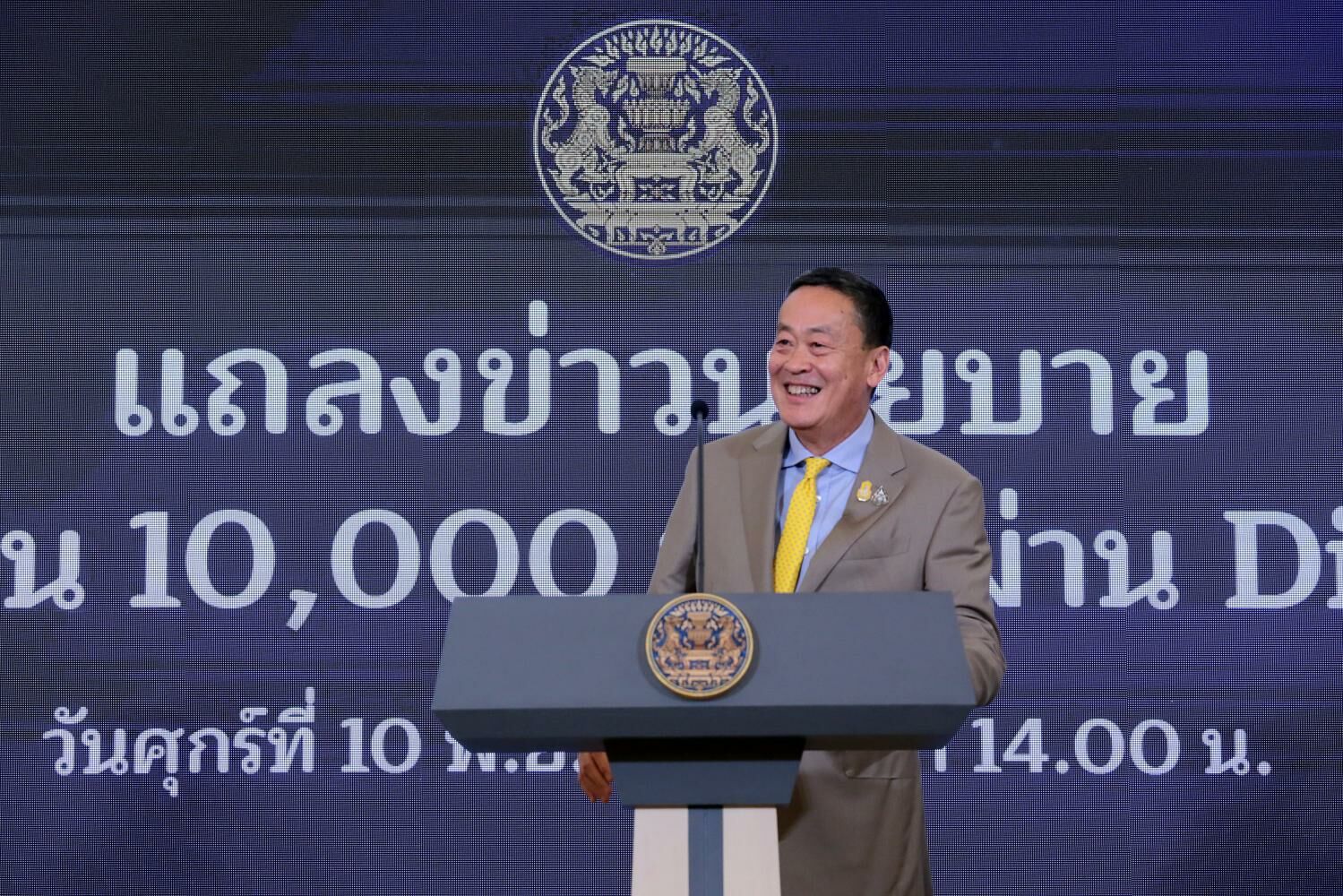Thai government changes funding approach for digital wallet project

Prime Minister Srettha Thavisin’s coalition government has made a crucial change to its flagship scheme, a digital wallet project aiming to distribute 10,000 baht (US$270) to 50 million Thais. The government has switched from borrowing funds, which faced severe criticism and raised concerns about possible violations of financial and fiscal discipline regulations, to using money from the annual expenditure budget.
The digital wallet project, requiring a hefty budget of 500 billion baht (US$ 13.5 billion), will be financed from three sources. The 2025 fiscal budget will provide 153 billion baht (US$4 billion), 172 billion baht (US$4.6 billion) will come from the Bank for Agriculture and Agricultural Cooperatives (BAAC) under Section 28 of the State Fiscal and Financial Discipline Act, and the remaining 175 billion baht (US$4.7 billion) from the 2024 fiscal budget management.
Government expenditure through Section 28 allows for state agencies to support state-sponsored projects by pre-allocating money, with the government promising to reimburse these expenditures later. This expenditure method, termed quasi-fiscal, does not classify the debt incurred through this channel as public debt.
The legality of the BAAC using its funds for this populist initiative is being debated. The Cabinet meeting on April 23 outlined the project’s objectives: to invigorate the economy by fostering monetary flow in all provinces, easing the burden of living for Thais, and improving the quality of life for people needing assistance, including vulnerable groups and farmers.
The government currently owes the BAAC around 600 billion baht (US$16 billion), excluding interest, and each year, it allocates a budget of around 60 to 90 billion baht (US$1.6 to 2.4 billion) to repay its outstanding debt to the BAAC.
Nonarit Bisonyabut, a senior economic researcher at the Thailand Development Research Institute, expressed his disagreement with the large-scale economic stimulus via a digital wallet project. He stated that the current economic conditions do not necessitate such a large-scale economic stimulus, reported Bangkok Post.
He added that the government’s decision to utilise funds from the yearly expenditure budget has placed its spending under scrutiny by both parliament and various organisations like the National Anti-Corruption Commission. Nevertheless, he acknowledged that if the government can adhere to these laws, the funding of the scheme should be deemed legal.
Latest Thailand News
Follow The Thaiger on Google News:


























